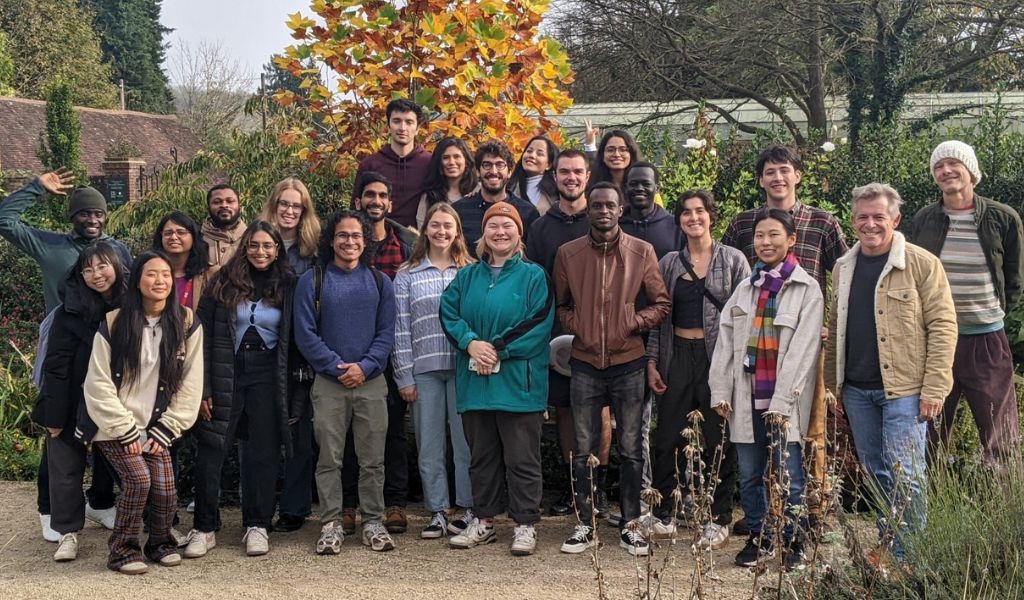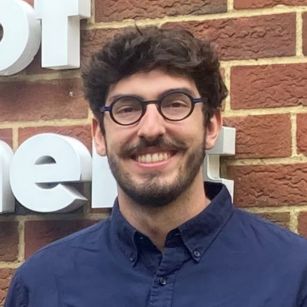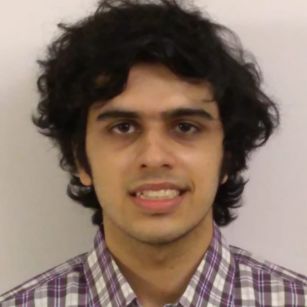Pedro Sanches de Frias, currently studying MSc Climate Change, Development and Policy, is one of the first students taking part in a double master’s programme as a result of our partnership with Escola de Administração de Empresas de São Paulo (FGV EAESP). This partnership offers students the opportunity to study for a year at IDS after first year studying for a master’s in Brazil.
Before coming to IDS, I worked at the São Paulo City Hall, first as a Bilateral Affairs Advisor at the Secretariat of International Affairs, and later as Coordinator of International Affairs at the São Paulo Development Agency, a municipal public company. My work focused on identifying, coordinating, and implementing potential cooperation projects between foreign governments and the city government, aiming to build partnerships across various sectors, including culture, education, sustainable urban development, and climate change.
With a professional trajectory marked by international cooperation, I have always nurtured a strong curiosity and desire to live and study abroad. I imagined how enriching it would be to immerse myself in a global environment and engage with an academic context different from what I was familiar with.

Why the double master’s
Not yet ready to pause my career at the City Hall to study abroad, I enrolled in FGV’s master’s programme to deepen my knowledge of governmental administration and policy. Known for its significant role in Brazilian politics since its founding and as one of the leading academic centres for public administration, FGV was the perfect choice, as I also knew it would provide a strong foundation to advance my studies at the intersection of development and climate. Moreover, FGV had recently launched a partnership was with IDS — an institute I had been following for years, which offered a degree, in partnership with the University of Sussex, focused specifically on Climate Change.
When I discovered the MSc in Climate Change, Development, and Policy, I immediately felt aligned with its focus and believed this was the right moment to pursue a degree abroad that could help me specialise on my theme of interest. I was even more thrilled to learn that this degree was jointly convened with the University of Sussex, making it a multi-institutional experience.
First impressions
From the very first induction session, I could see how welcoming and community-driven the staff, professors, and students were. Their commitment to doing socially responsible research and teaching wasn’t just evident in their speeches; it was also palpable in the room and interactions between them, reflecting a deep sense of otherness and openness. Committed to conscious learning, IDS encourages us to excel not just for the sake of personal success, but to positively impact society and the lives around us.
IDS feels like a turning point in every student’s life, where we can rigorously pursue excellence without sacrificing tenderness — a place where we prepare to have our lives changed and be better for it. It is exactly what I was expecting and much more.
Reflections on my first term
My first term at IDS and Sussex has been a dynamic and challenging learning journey, to say the least. It has pushed me to embrace curiosity, organise myself the best I could and cherish the most out of readings, lectures and seminars, engaging with a vibrant support network. One of the most remarkable aspects of this experience has been the diverse and welcoming community that has formed around our cohort. From the moment we arrived, we were told this sense of community would define our time here, and I’ve truly felt it come to life, creating a strong bond and sense of belonging to IDS and to our cohort. It’s important to add that many students from the last cohort are still on campus and getting to know them was a great way of recognising the traits that define an IDS student, whilst seeing these characteristics starting to manifest in us.
The opportunity to connect with classmates from across the globe — each bringing unique cultural perspectives, professional experiences, and insights — has been inspiring. Our discussions are richer and more thought-provoking because of this diversity, broadening my understanding of critical issues like climate change and sustainable development.
Academically, IDS and Sussex have exceeded my expectations. The faculty’s deep expertise and passion shine through in every lecture, making them engaging and intellectually stimulating. The balance between robust theoretical frameworks and practical applications has been particularly invaluable, equipping us to tackle real-world challenges with confidence and competence.
Adjusting to the intensity of the programme has not been without its challenges, as balancing academic, professional, and personal responsibilities required significant adaptation that is still taking time to settle. Yet, this rigor was exactly what I sought when I chose to come here, and the unwavering support from faculty, peers, and the available resources has helped me navigate these demands while continuing to grow.
I have particularly appreciated the programme’s emphasis on interdisciplinary approaches and collaboration, which have encouraged me to step out of my comfort zone. Venturing into areas like the natural sciences to address complex development issues has expanded my perspective and skillset in unexpected and exciting ways, the exact thing I was looking for.
While I came into IDS and Sussex with high expectations, the first term has reinforced and surpassed them. It has not only deepened my commitment to my field but also broadened my view of several themes and inspired me to push my own boundaries as a student and a researcher. Looking ahead, I am eager to see where this journey will lead and to continue striving to learn as much as I can.
My career trajectory
Partnering a degree from FGV with one from IDS and Sussex will undoubtedly enhance my development as a professional dedicated to international cooperation on climate change. This combination will ensure that the robust, science-based knowledge I gain at IDS and Sussex and the public commitment of FGV become emblematic traits of my career.
Given Brazil’s current context and recognising that we are not alone in facing globally driven issues, I believe the multidisciplinary nature of this double degree will be paramount in guiding my perspective on development and the myriad of challenges climate change poses. The approach of IDS and Sussex is to merge different disciplines to enhance our ability to respond to climate emergencies and promote sustainable development — an objective I highly value for my career. Meanwhile, FGV has provided me with a deep understanding of Brazilian institutions and policy making, which gave tools to navigate government structures.
After graduating, I plan to go back to Brazil to start my journey towards becoming a diplomat dedicated to sustainability and environmental discussions within the Brazilian Ministry of Foreign Affairs, in an effort to engage with fellow developing and underdeveloped nations that are now facing more prominently the consequences of climate change.


